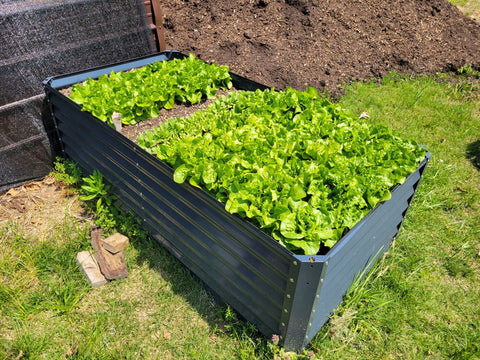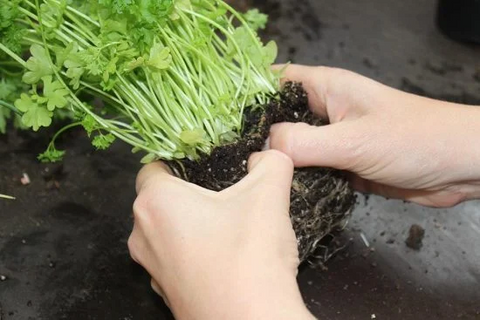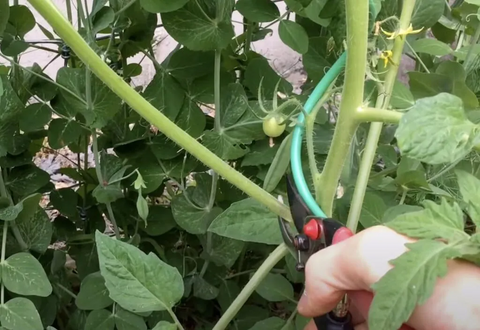Herbs are the unsung heroes of the culinary world. Adding a burst of flavor, depth, and aroma to dishes, they transform ordinary meals into culinary delights. Imagine having these flavor-enhancing wonders at your fingertips year-round. With a year-round herb garden in raised beds, you can achieve just that. In this blog post, we'll delve into the strategies and processes to maintain a thriving herb garden that provides fresh flavors no matter the season.The following content also has some reference value for raised garden beds.

The Joy of Year-Round Herbs
Year-round herb gardening isn't just about convenience; it's about elevating your culinary experiences and enhancing your connection to nature. Here's why you should consider establishing a year-round herb garden in raised beds:
- Freshness: Nothing beats the taste of fresh herbs. Year-round gardening ensures a continuous supply of these culinary treasures.
- Cost-Efficiency: Growing your herbs can be cost-effective, especially when compared to buying fresh herbs or dried ones from the store.
- Control: You have control over the growing conditions, ensuring that your herbs are free from pesticides and other harmful chemicals.
- Variety: A year-round garden allows you to experiment with a wide variety of herbs and explore new flavors.
Strategies for Year-Round Herb Gardening in Raised Beds
- Selecting the Right Herbs:
- Not all herbs thrive in every season. Choose a mix of cool-season and warm-season herbs to maintain a year-round Examples include basil, mint, rosemary, thyme, parsley, and chives.
- Raised Beds:
- Raised beds offer several advantages, including better drainage, improved soil quality, and protection from pests. They also make it easier to control the growing environment.
- Sunlight and Shelter:
- Ensure your herb garden receives adequate sunlight, as most herbs require full sun. If you're in an area with harsh winters, consider providing shelter to protect your herbs from frost and cold winds.
- Well-Draining Soil:
- Herbs dislike waterlogged soil. Use well-draining soil in your raised beds to prevent root rot and other water-related issues.

- Companion Planting:
- Some herbs are excellent companions for specific vegetables, helping deter pests and improve overall garden health. For example, basil deters aphids, making it a great companion for tomatoes.
- Mulching:
- Mulch helps preserve moisture, controlling soil temperature and weed prevention. Use organic mulch to enhance soil quality.
- Pruning and Harvesting:
- Regular pruning and harvesting encourage herb plants to produce more leaves. However, avoid harvesting more than one-third of the plant at once.
- Pest Management:
- Keep an eye out for pests and employ natural remedies or organic pesticides to protect your herbs.
The Year-Round Herb Gardening Process
- Planning:
- Plan your herb garden based on the herbs you want to grow. Consider companion planting and placement within the raised beds.
- Soil Preparation:
- Prepare the soil by adding organic matter, compost, and ensuring it has good drainage.
- Sowing and Transplanting:
- Depending on the herbs, sow seeds or transplant seedlings. Follow spacing recommendations for each type.
- Care and Maintenance:
- Regularly water your herbs, but avoid overwatering. Prune and harvest as needed, and protect the garden from pests.
- Seasonal Adjustments:
- In cooler months, you may need to provide shelter or use cloths to protect herbs from frost. In hot summers, ensure adequate hydration.
- Harvesting and Drying:
- Harvest herbs at their peak for the best flavor. You can also dry herbs for use during the off-season.
Herb Garden Combinations
Creating a diverse mix of herbs ensures you have fresh flavors year-round. Here are some herb combinations to consider:
- Italian Herb Garden:
- Basil, oregano, rosemary, and thyme.
- Minty Medley:
- Spearmint, peppermint, and chocolate mint.
- Culinary Trio:
- Chives, parsley, and tarragon.
- Fragrant Delight:
- Lavender, lemon balm, and cilantro.

In Conclusion
A year-round herb garden in raised beds is a culinary investment that keeps on giving. By carefully selecting herbs, providing the right growing conditions, and following best practices, you can enjoy fresh flavors and elevate your cooking all year long. Whether you're preparing a summery salad or a hearty winter stew, your garden will provide the perfect seasoning. So, roll up your sleeves, get your hands in the soil, and savor the taste of your year-round herb garden.









